Sensory receptors definition
Sensory Receptors Definition. Taste receptors convert these properties into signals that our brain interprets as a sweet salty sour or bitter taste. Sensory receptors are specialized neurons or nerve endings that respond to changes in the environment by converting energy from a specific stimulus into an action potential a process known as transduction. Sensory receptor an organ having nerve endings in the skin or viscera or eye or ear or nose or mouth that respond to stimulation. 13 1 sensory receptors a major role of sensory receptors is to help us learn about the environment around us or about the state of our internal environment.
 Types Of Sensory Receptors Youtube From youtube.com
Types Of Sensory Receptors Youtube From youtube.com
Lateral line lateral line organ sense organs of fish and amphibians. Different types of stimuli from varying sources are received and changed into the electrochemical signals of the nervous system. 13 1 sensory receptors a major role of sensory receptors is to help us learn about the environment around us or about the state of our internal environment. Taste receptors convert these properties into signals that our brain interprets as a sweet salty sour or bitter taste. Sensory receptors are specialized neurons or nerve endings that respond to changes in the environment by converting energy from a specific stimulus into an action potential a process known as transduction. This process is called sensory transduction.
Believed to detect pressure changes in the water.
Believed to detect pressure changes in the water. Sensory receptor an organ having nerve endings in the skin or viscera or eye or ear or nose or mouth that respond to stimulation. Sensory receptors are specialized neurons or nerve endings that respond to changes in the environment by converting energy from a specific stimulus into an action potential a process known as transduction. Taste receptors convert these properties into signals that our brain interprets as a sweet salty sour or bitter taste. For example taste buds are receptors on the tongue that are activated by chemical properties in food and drinks. A sensory nerve ending a cell or group of cells or a sense organ that when stimulated produces an afferent or sensory impulse.
Source: simple.wikipedia.org
Different types of stimuli from varying sources are received and changed into the electrochemical signals of the nervous system. 13 1 sensory receptors a major role of sensory receptors is to help us learn about the environment around us or about the state of our internal environment. Sensory receptors are specialized neurons or nerve endings that respond to changes in the environment by converting energy from a specific stimulus into an action potential a process known as transduction. Sensory receptor an organ having nerve endings in the skin or viscera or eye or ear or nose or mouth that respond to stimulation. Believed to detect pressure changes in the water.
 Source: quizlet.com
Source: quizlet.com
Different types of stimuli from varying sources are received and changed into the electrochemical signals of the nervous system. Sensory receptor an organ having nerve endings in the skin or viscera or eye or ear or nose or mouth that respond to stimulation. A sensory nerve ending a cell or group of cells or a sense organ that when stimulated produces an afferent or sensory impulse. Different types of stimuli from varying sources are received and changed into the electrochemical signals of the nervous system. Taste receptors convert these properties into signals that our brain interprets as a sweet salty sour or bitter taste.
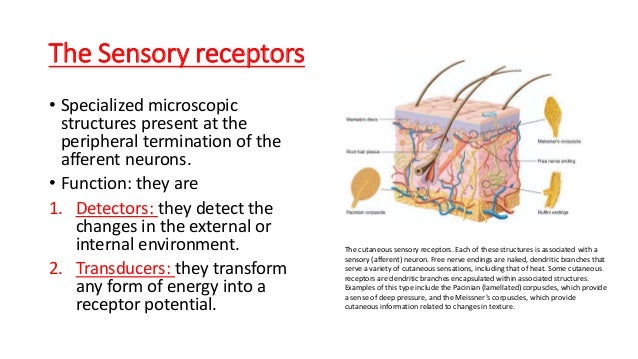 Source: slideshare.net
Source: slideshare.net
13 1 sensory receptors a major role of sensory receptors is to help us learn about the environment around us or about the state of our internal environment. Different types of stimuli from varying sources are received and changed into the electrochemical signals of the nervous system. This process is called sensory transduction. Sensory receptors are specialized neurons or nerve endings that respond to changes in the environment by converting energy from a specific stimulus into an action potential a process known as transduction. Believed to detect pressure changes in the water.
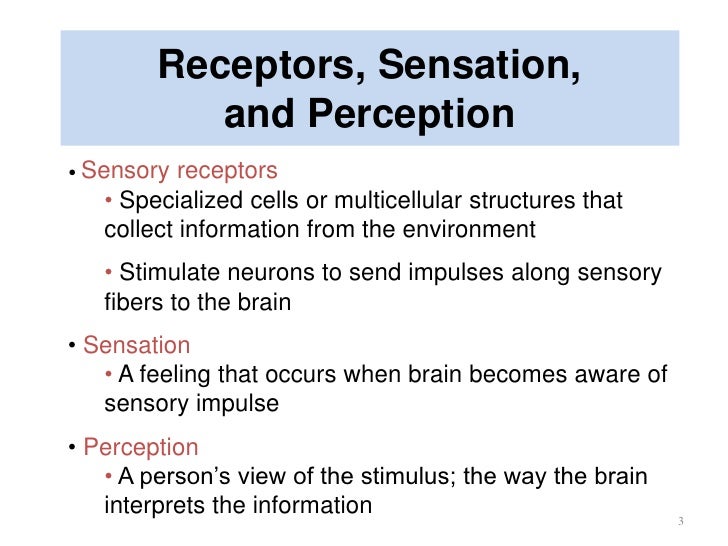 Source: slideshare.net
Source: slideshare.net
Sensory receptors are specialized neurons or nerve endings that respond to changes in the environment by converting energy from a specific stimulus into an action potential a process known as transduction. Believed to detect pressure changes in the water. A sensory nerve ending a cell or group of cells or a sense organ that when stimulated produces an afferent or sensory impulse. Taste receptors convert these properties into signals that our brain interprets as a sweet salty sour or bitter taste. Sensory receptor an organ having nerve endings in the skin or viscera or eye or ear or nose or mouth that respond to stimulation.
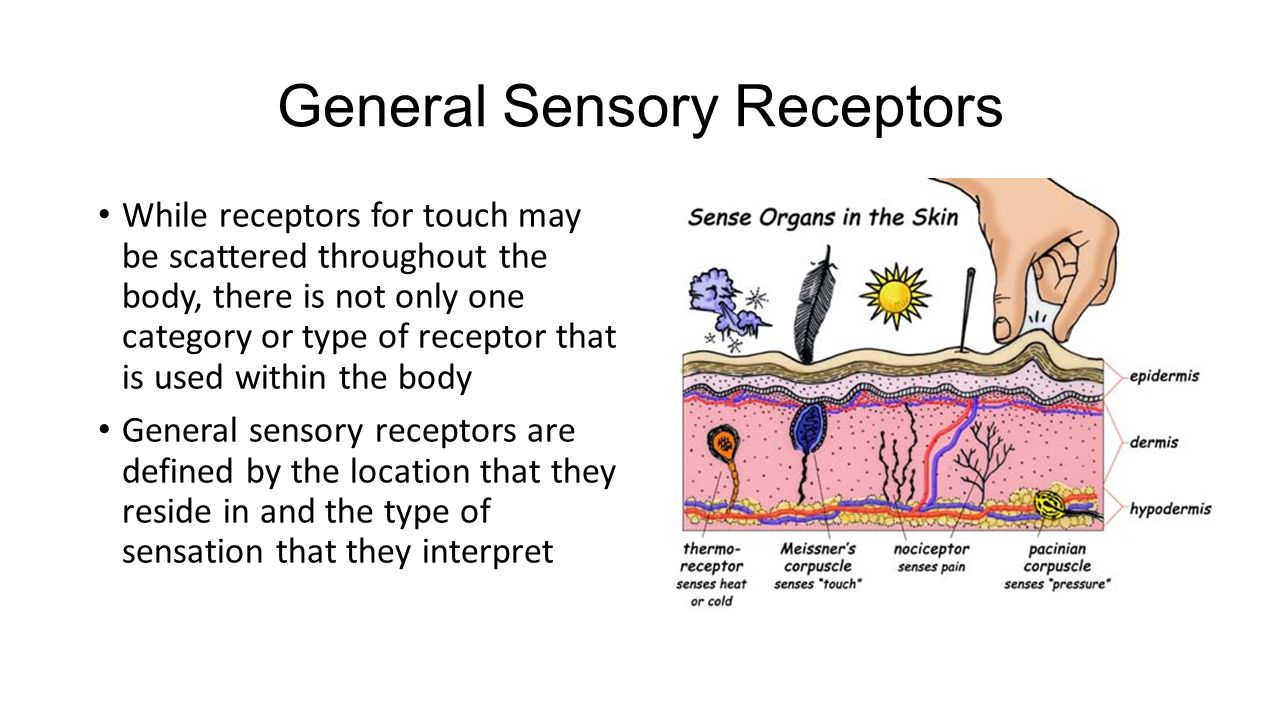 Source: slideplayer.com
Source: slideplayer.com
A sensory nerve ending a cell or group of cells or a sense organ that when stimulated produces an afferent or sensory impulse. 13 1 sensory receptors a major role of sensory receptors is to help us learn about the environment around us or about the state of our internal environment. A sensory nerve ending a cell or group of cells or a sense organ that when stimulated produces an afferent or sensory impulse. Sensory receptors are specialized neurons or nerve endings that respond to changes in the environment by converting energy from a specific stimulus into an action potential a process known as transduction. Believed to detect pressure changes in the water.

Lateral line lateral line organ sense organs of fish and amphibians. 13 1 sensory receptors a major role of sensory receptors is to help us learn about the environment around us or about the state of our internal environment. For example taste buds are receptors on the tongue that are activated by chemical properties in food and drinks. Taste receptors convert these properties into signals that our brain interprets as a sweet salty sour or bitter taste. A sensory nerve ending a cell or group of cells or a sense organ that when stimulated produces an afferent or sensory impulse.
 Source: droualb.faculty.mjc.edu
Source: droualb.faculty.mjc.edu
A sensory nerve ending a cell or group of cells or a sense organ that when stimulated produces an afferent or sensory impulse. Lateral line lateral line organ sense organs of fish and amphibians. This process is called sensory transduction. Believed to detect pressure changes in the water. Sensory receptor an organ having nerve endings in the skin or viscera or eye or ear or nose or mouth that respond to stimulation.
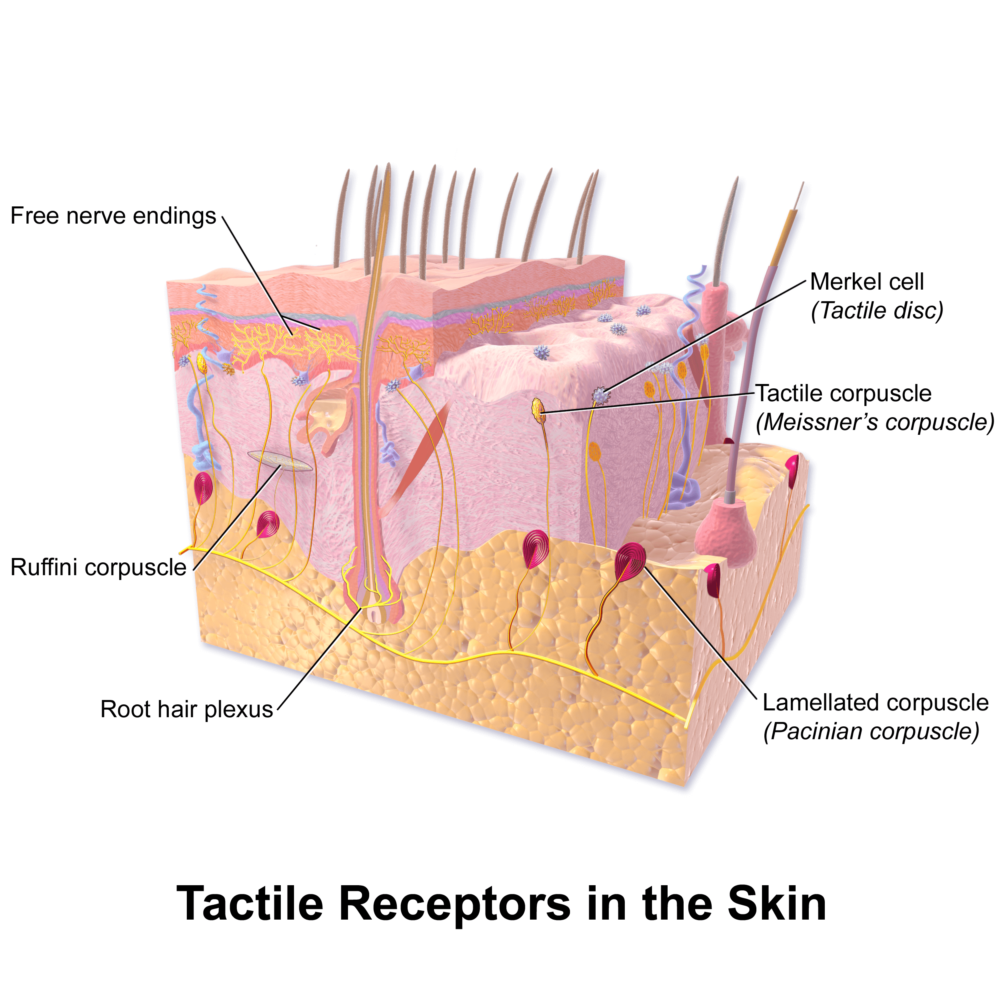 Source: explorepsychology.com
Source: explorepsychology.com
Lateral line lateral line organ sense organs of fish and amphibians. Sensory receptors are specialized neurons or nerve endings that respond to changes in the environment by converting energy from a specific stimulus into an action potential a process known as transduction. Lateral line lateral line organ sense organs of fish and amphibians. Sensory receptor an organ having nerve endings in the skin or viscera or eye or ear or nose or mouth that respond to stimulation. This process is called sensory transduction.
 Source: open.oregonstate.education
Source: open.oregonstate.education
A sensory nerve ending a cell or group of cells or a sense organ that when stimulated produces an afferent or sensory impulse. This process is called sensory transduction. Taste receptors convert these properties into signals that our brain interprets as a sweet salty sour or bitter taste. A sensory nerve ending a cell or group of cells or a sense organ that when stimulated produces an afferent or sensory impulse. Lateral line lateral line organ sense organs of fish and amphibians.
 Source: d.umn.edu
Source: d.umn.edu
Sensory receptors are specialized neurons or nerve endings that respond to changes in the environment by converting energy from a specific stimulus into an action potential a process known as transduction. Different types of stimuli from varying sources are received and changed into the electrochemical signals of the nervous system. Believed to detect pressure changes in the water. Sensory receptors are specialized neurons or nerve endings that respond to changes in the environment by converting energy from a specific stimulus into an action potential a process known as transduction. Sensory receptor an organ having nerve endings in the skin or viscera or eye or ear or nose or mouth that respond to stimulation.
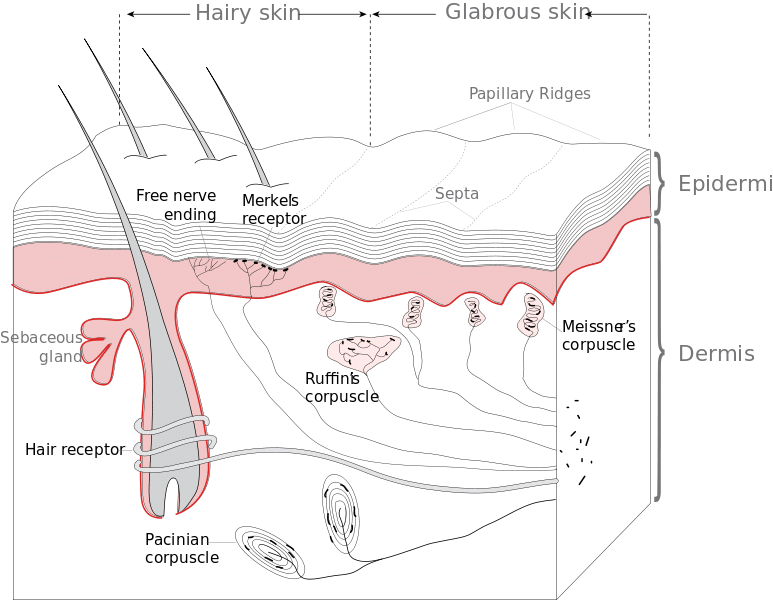 Source: teachmephysiology.com
Source: teachmephysiology.com
For example taste buds are receptors on the tongue that are activated by chemical properties in food and drinks. A sensory nerve ending a cell or group of cells or a sense organ that when stimulated produces an afferent or sensory impulse. Taste receptors convert these properties into signals that our brain interprets as a sweet salty sour or bitter taste. Lateral line lateral line organ sense organs of fish and amphibians. 13 1 sensory receptors a major role of sensory receptors is to help us learn about the environment around us or about the state of our internal environment.
 Source: quizlet.com
Source: quizlet.com
Sensory receptors are specialized neurons or nerve endings that respond to changes in the environment by converting energy from a specific stimulus into an action potential a process known as transduction. Sensory receptors are specialized neurons or nerve endings that respond to changes in the environment by converting energy from a specific stimulus into an action potential a process known as transduction. Lateral line lateral line organ sense organs of fish and amphibians. 13 1 sensory receptors a major role of sensory receptors is to help us learn about the environment around us or about the state of our internal environment. For example taste buds are receptors on the tongue that are activated by chemical properties in food and drinks.
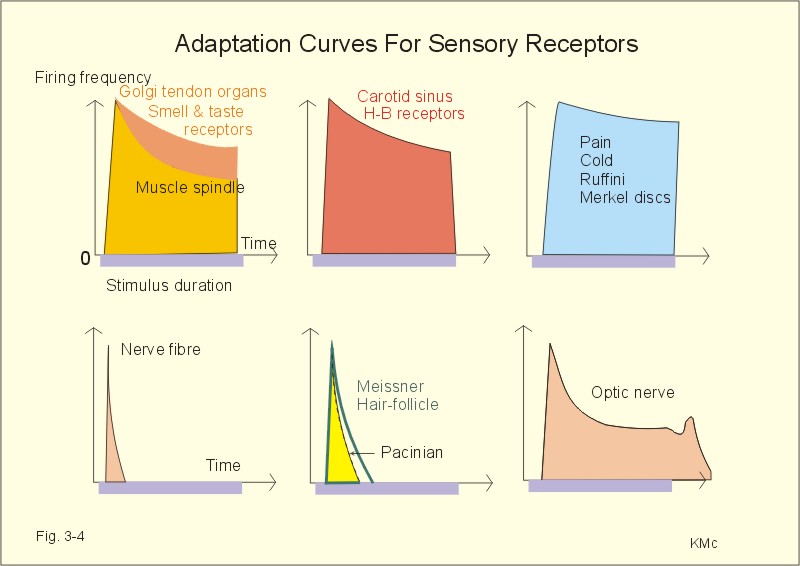 Source: zuniv.net
Source: zuniv.net
Different types of stimuli from varying sources are received and changed into the electrochemical signals of the nervous system. 13 1 sensory receptors a major role of sensory receptors is to help us learn about the environment around us or about the state of our internal environment. Sensory receptor an organ having nerve endings in the skin or viscera or eye or ear or nose or mouth that respond to stimulation. Sensory receptors are specialized neurons or nerve endings that respond to changes in the environment by converting energy from a specific stimulus into an action potential a process known as transduction. Believed to detect pressure changes in the water.
 Source: youtube.com
Source: youtube.com
Sensory receptor an organ having nerve endings in the skin or viscera or eye or ear or nose or mouth that respond to stimulation. For example taste buds are receptors on the tongue that are activated by chemical properties in food and drinks. Believed to detect pressure changes in the water. Sensory receptor an organ having nerve endings in the skin or viscera or eye or ear or nose or mouth that respond to stimulation. Taste receptors convert these properties into signals that our brain interprets as a sweet salty sour or bitter taste.
 Source: slideplayer.com
Source: slideplayer.com
13 1 sensory receptors a major role of sensory receptors is to help us learn about the environment around us or about the state of our internal environment. Taste receptors convert these properties into signals that our brain interprets as a sweet salty sour or bitter taste. Sensory receptor an organ having nerve endings in the skin or viscera or eye or ear or nose or mouth that respond to stimulation. Different types of stimuli from varying sources are received and changed into the electrochemical signals of the nervous system. For example taste buds are receptors on the tongue that are activated by chemical properties in food and drinks.
If you find this site serviceableness, please support us by sharing this posts to your preference social media accounts like Facebook, Instagram and so on or you can also bookmark this blog page with the title sensory receptors definition by using Ctrl + D for devices a laptop with a Windows operating system or Command + D for laptops with an Apple operating system. If you use a smartphone, you can also use the drawer menu of the browser you are using. Whether it’s a Windows, Mac, iOS or Android operating system, you will still be able to bookmark this website.







